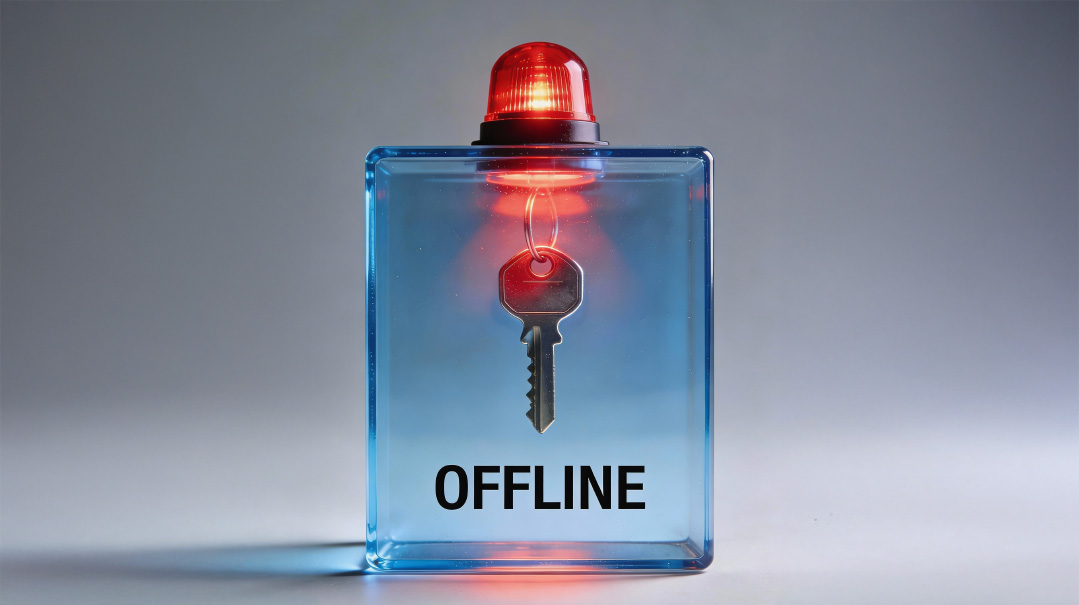Missing a Beat
| February 14, 2023It was the perfect way to cut wedding expenses — but it came with a price

Gershon: I understand your community standards, but you’ve put me in an impossible position
Rabbi Goldblum: I know you want to do the right thing, but what about the next baal simchah?
Gershon
I don’t know why it took me by surprise. It wasn’t as if I’d never made a wedding before. But this time… well, I guess I do know why this time was different.
The last three weddings I’d made were a few years ago, before Covid, when business was booming. Sure, it cost an arm and a leg, but baruch Hashem, we could afford it.
Now… things were different.
I had a job, and I was grateful for it — but my own business had disintegrated long ago, leaving a pile of debts, and it felt like financial security was a long way off.
Now, my son Naftali was getting married, and together with the excitement and gratitude and joy came more than a hint of worry.
We were barely making it through the month. We had debts that were only growing. And now we were contributing toward making a wedding.
I was lucky, though. Bracha, the kallah, came from a lovely family in another city, and her parents were taking care of most of the wedding expenses and arrangements. The only things left for me were the traditional “FLOP” expenses.
“Bracha’s mother told me about the hall and the invitations. She has very classy taste,” my wife, Judy, told me.
I knew she was concerned about our contribution to the wedding. My son would appreciate nice music, a nice photographer, those sorts of things.
“We’ll do our parts as classy as we can,” I promised her.
I wanted to give generously, too. I just didn’t want to break the (already kind of broken) bank account.
“Can we talk about the music?” Naftali hovered in the doorway of my study, where I was putting in some extra work-from-home hours. “I had an idea…”
I put my work to one side. “Sure, go for it.”
The money stress wasn’t his problem. I just hoped he didn’t have something too specific — or costly — in mind.
“So there’s this thing that a lot of my friends have done recently, instead of hiring a band and singer,” he said, pulling up a chair. “It’s basically a DJ, but a frum one, they have all the ‘in’ wedding music, all the equipment, and it’s a really good option, budget-wise.
“Also, it’s really nice,” he added quickly. “We’d get to choose all the music, which songs and albums we like, and it’s more varied. We don’t have to just go with one singer and his preferred style, you know?”
A DJ? I scratched at my beard. “That sounds… interesting,” I said. “I’ve never seen one of them at a wedding. Are you sure it’s the norm?”
Naftali cracked a smile. “Abba, when was the last time you went to a wedding?”
He was right. It had been a long time. First there was Covid, and then there’s the fact that we have a small extended family, no weddings recently, and I work for a non-Jewish firm. My early-morning chavrusa, Tzvi, had made a chasunah last year, but it was in Israel. I know people who go to weddings several times a week, but somehow, I don’t get invited to that many.
“I actually have a few coming up, the Kahns, the Minkowitzes from down the block… I’m going to look into this DJ thing,” I promised.
I’D never heard of the DJ thing before, but a few days later, I attended a chasunah, and my son was right — there was no band, no singer, just great music pumping through the hall. The DJ, a cool-looking guy in black shirt and white pants, seemed quick and competent — the right songs at the right time, a nice, varied playlist, and all the equipment in order.
“Never seen this before, but it seems to work well,” I said to an acquaintance of mine, motioning to the DJ while we stood to one side during the dancing.
“Yeah, it’s great,” he said. “I don’t know why we even spend the money on live bands. If you have plenty to spare, then fine, but if you’re looking to budget, this is really the way to go.”
“Sure seems like it,” I said.
“I mean, think about it, there are advantages aside from the money here,” my friend said. “The music is preplanned, so you know exactly what you’re getting. The chassan and kallah can choose the playlist and have the original singers singing their pieces, instead of whoever’s up on stage choosing which songs, or how long to spend on each song, or taking something to a lower key because they can’t reach all the notes… you know how it goes. And the timing! You can create a playlist to the exact minute, none of these things with the dancing overrunning and the chasunah ending far too late…”
Prompt and well-managed scheduling was a definite priority for me. I nodded in approval.
“Hey, you’re making chasunah soon, aren’t you?” my friend said, remembering. “Have I convinced you to book a DJ?”
He laughed at his own joke, but I was seriously considering it.
“Maybe I will,” I told him.
I made some inquiries and found out about a DJ called Moshe. He had a good name, did many chasunahs around the area. Before I confirmed it, I showed Naftali a clip of a wedding where he managed the music, and ran it by the mechutanim as well.
Everyone seemed happy with the idea, and I was happy that for once, the trendy option was also the cheaper one. I sent Moshe a deposit to lock in our date — it was 50 percent of the final payment, non-refundable — and sighed with relief that this was one thing off my head.
And then Bracha’s father called.
I knew immediately, just from the tone of his voice, that we had a problem.
“I feel so bad,” he began. “About the music… this DJ thing? I didn’t realize, but apparently no one does this in our community, and the rav isn’t happy about the idea… he just spoke to a group of us about it…”
“About what?” I asked, although I already knew what he was going to say.
Mr. Berger coughed. “About… you know, that people shouldn’t hire DJs for chasunahs. Stick to singers and bands, a one-man keyboard guy would be fine…”
I actually shook my head in disbelief, even though he couldn’t see me.
“Reb Mordechai,” I said. “You understand that I’ve already paid the deposit here, and that it will be a major expense to lose that, plus hire a singer and band. And two weeks ago, when I called you before booking it in, you were fine with the idea.”
“I know, I know. I feel so bad,” he said again, a little helplessly. “What should I say? The idea sounded okay to me, my daughter was happy, but now I’m hearing more about it, and the rav explained why he’s against the concept.… I had no idea it was an issue, to be honest, but what he said really makes sense.… Maybe you should speak to Rabbi Goldblum directly?”
It was the last thing I wanted to do — honestly, I had enough on my head — but that seemed to be the only way forward.
“I feel terrible,” the mechutan said again.
But feeling terrible wasn’t going to help, was it?
I called Rabbi Goldblum immediately.
“Ah, Reb Mordechai’s mechutan, a groise mazel tov,” the rav said warmly when I introduced myself.
I thanked him, and explained the situation: the fact that as far as I was aware, the DJ trend had become accepted in other communities, and I had been genuinely unaware that there could be an issue.
“In fact, I checked with the Bergers before hiring him, and they were fine with it, and the chassan and kallah were excited about the idea as well,” I said.
Rabbi Goldblum mm-hmmed down the phone, and then said, “I understand that. The truth is, had I known about the ‘trend,’ as you call it, earlier, I would have spoken to the kehillah earlier, and the Bergers would have known about it by then. As it stands, there are many disadvantages to hiring a DJ — I would venture to call it a ‘slippery slope,’ something that should be avoided, because even though one DJ might do a good job of keeping the atmosphere of kedushah and appropriateness at a simchah, the next one might not.”
I could hear his point, but I wanted him to understand what this meant for me.
“I see all that, but the issue is that no one knew about this before I hired the DJ,” I said. “At this point, I’ve paid a deposit and stand to lose a lot of money if I have to cancel on the DJ and hire a band and singer at the last minute. That’s aside from the difficulty in finding someone who is still available, of course.”
“The monetary loss would be significant,” the rav half-asked, half-stated.
“Yes. If it were possible for me to just shoulder the cost and go along with the community’s needs, I would absolutely do it. I’m just… making a chasunah is hard enough. And the mechutanim are already taking on most of the burden. We don’t have the means to give up the deposit and pay a new, more expensive, singer. Although it isn’t just the money, either. There’s the headache — you can’t imagine how time-consuming it is, searching out the options, trying to find a singer that everyone will be happy with, who is also available on the right night — and it’s so near to the time, too.”
Rabbi Goldblum was quiet for a minute. “It’s a difficult situation. I understand. And no one can stand in your way, it’s your chasunah, you booked this DJ” — he said it as if it was a negative word — “in good faith, you can do whatever you feel comfortable with.”
I hung up the phone feeling just as stuck as before.
Technically, the rav had implied that we could stick with the DJ, no one would stop us.
And yet I could see it would still be a problem.
The rav of the community clearly frowned upon the trend, and he had already spoken to the shul’s members about it. Would everyone realize we’d booked this in advance, not knowing about the Rav’s stance on the matter? Would having a DJ embarrass our new mechutanim? Embarrass our children?
I was stuck in a lose-lose situation. Go ahead, and I might embarrass Naftali and his in-laws, upset their community. Pull out on the DJ, and I would lose the deposit, plus the extra costs of a singer, plus have the stress of finding a new option.
And honestly, it just wasn’t right. How could they put me in this situation?
“I think we should just go ahead as planned,” Judy opined. “You know how it goes, so many times these new trends start, people speak out against them, and then eventually they just become the norm. So you’re a little bit early on the trend. So what?”
Part of me wanted to agree with her, but the other part of me knew that it couldn’t be right to flout the standards of a rav in his own community.
And yet, these standards were coming on my cheshbon — when I’d already paid the deposit. We had no extra money at all. We couldn’t afford to pay for the music twice over.
I didn’t want to embarrass my mechutan or cause my son any discomfort at his own wedding. But he assured me he understood and would be fine with my decision. He and his kallah actually liked the DJ idea, they weren’t interested in a fancy orchestra at the expense of their financially strapped parents, and they were excited to choose their own playlist and whatever. And wasn’t this all supposed to be about them?
The wedding date drew nearer. The mechutan called once or twice, about other matters, carefully skirting the issue of the DJ. My deposit money had long since been sent to the DJ, and so far, my attempts to find an available singer at a reasonable price (not that I could really afford it) had produced exactly zero results.
I just had no idea what I was going to do.
If I could tell the community one thing, it would be: This has become the norm all over, why are we the “korbanos” of a losing battle in someone else’s community?
Rabbi Goldbum
Sometimes, it takes a trip out of town to remind a person what they have to be grateful for.
I don’t usually fly out to attend weddings out of town — my position as rav of a large, vibrant community means I have commitments to my kehillah most of the time — but family is family, and when my wife’s first cousin made a chasunah, I felt it was important for me to attend.
The chasunah was held in a small hall, and it looked like there weren’t a lot of guests in attendance, which made me even more confident that I’d made the right decision to come. As I greeted my cousin — the father of the chassan — and wished him a warm mazel tov, I thought about how long it had been since I’d taken a reprieve from my communal responsibilities for a few hours. Too long. Surely, this would be good for me, and by extension, for the kehillah.
With this in mind, I settled down to enjoy the chuppah — a moving affair, if a little too trendy for my taste, accompanied by several violins and some songs that I’d never heard before.
“I guess things work differently in different places,” I told my wife, Chaya, when we met in the lobby between the chuppah and the dinner.
She looked like she was enjoying herself — it was nice for her to attend a simchah as family, and not as “the rebbetzin.”
We parted ways at the double doors of the ballroom.
“See you later,” I said.
And then I stepped through the doors to the men’s side of the mechitzah, and did a literal double take.
Was I in the wrong place?
The lighting was dim, but I’d been to weddings like that before. What was completely foreign to me were the flashing lights, different colors, strobing across the room to the accompaniment of some bass instrument.
I felt like I’d mistakenly walked into a nightclub or something.
“Kol sasson v’kol simchah,” belted out the singer — or was it a singer? I couldn’t see anyone with a microphone up on a stage. And the music had a decidedly electronic sound to it.
As my eyes adjusted to the dimness, I put the pieces together: The music was being pumped through a sound system, managed by a small, trim man with a headset, phone, and a lot of wires and equipment. The lights were coming from one of these machines, another seemed to be emitting puffs of smoke. The music itself wasn’t terrible, or at least it varied — some songs were decidedly more Jewish than others — but the amplified beats, the thumping background sounds, the strobe lights…
This was chasunah music?
I wanted to turn around and leave then and there, but I didn’t have the heart to do it to Chaya, who’d been so looking forward to an evening out with her family. It would be pretty offensive to the baal simchah as well. So I swallowed my distaste, took my seat, and tried to focus on something other than the pounding music, which was quickly morphing into a pounding headache.
On the way back to our hosts for the night, I casually asked Chaya what she’d thought of the wedding.
“Oh, it was amazing, I was at a table with all my sisters, and…” She broke off, noticing my expression. “Oh. You’re talking about the music? Right, it was a little… weird.”
“Just weird?” I frowned. “I thought it was terrible. Not like a Yiddishe simchah at all. It was like… a disco. A nightclub. No?”
“Yeah, this DJ thing is a little… strange to get used to,” Chaya agreed. “The truth is, I was shocked when I first walked into the hall. But Penina told me it’s becoming the ‘done’ thing, people hire DJs to save money on a band and singer, and no one else seemed to really thing there was an issue… I guess it’s already become normal over there.”
Well, one thing was for sure, I was not ready for it to “become the norm” in my own kehillah. I was so grateful to be leading a community of sincere, earnest, and well-meaning families. The simchahs we made were events filled with kedushah, and no club-disco kind of entertainment could be allowed to make inroads to destroy that.
I decided to speak to the community members in small groups, starting with those with children of marriageable age, and explaining the issues to them personally, instead of issuing blanket statements or “bans.” Hopefully, they would be open and receptive to what I felt, and we’d nix the trend from the start, so it would never become a part of our community simchahs.
There were several shul members who had children engaged to be married, and I chose to speak to them first. After Shacharis on Sunday morning, we sat down in the small shiur room adjacent to the ezras nashim, and I told them about my experience at the wedding I’d attended.
Choosing my words carefully, I explained how I hoped that our community could strive for something higher and could avoid letting this trend become the “norm” where we lived.
The men seemed receptive, most of them nodding, a few asking questions and clarifying things. It seemed to me, though, that the message had gone down well.
Except…
“Would the rav have a few minutes?” Mordche Berger, a longstanding congregant, asked me quietly when the meeting was finished. He hadn’t said one word in the meeting, which I’d taken to be tacit agreement with what I was saying. Now, though I realized how nervous he looked. Oh, no.
“Avadeh, Reb Mordechai. Let’s go downstairs, where we’ll have some quiet.”
“About this… this thing, hiring a DJ for a chasunah,” Mr. Berger began, when we were seated in my office.
“Yes,” I said, recalling that the Bergers would be marrying off a daughter in a few weeks’ time. Foreboding settled in my stomach.
Mordche Berger nodded very quickly, a few times, and then plunged into his problem. “This is just — I don’t know what to say. I hear what the rav is saying, how bad it can be, and I 100 percent want to support that. The problem is… our mechutanim undertook to arrange the music for the chasunah, and already a while back they asked if we would be okay with this — this DJ idea, for the chasunah. It would save a significant amount of money, and I understood that we would be able to choose the songs, make the playlist, ensure that the music would stay appropriate… I don’t think he hired someone who does these flashing lights or things that the rav spoke about.”
I waited for more, but he seemed to be done. “And? This DJ has been hired already?”
Mr. Berger spread out his hands in a helpless gesture. “I think so. Like I said, this was a few weeks ago. And I know my daughter and her chassan liked the idea, they were happy to save this money and have more say in what music played, in what order… they were going to meet the DJ sometime in the next couple of weeks to organize everything.” He shrugged and gestured again with his hands. “In all honesty, I didn’t think it was anything that could be a problem. The way my mechutan described it, it sounded like a great money-saver, and a way to make things more organized and running efficiently — because you can time the music to the minute in advance. I just had no idea that these things could be an issue.”
“I hear,” I said, and I did.
I heard all of it. And the way the trend had almost burrowed its way, so easily and unobtrusively, into my own community, made me all the more determined to stop it in its tracks.
“This is something that needs some more thought,” I told him. “I’ll get back to you on it.”
But all I could think of when he’d left my office was: This trend really felt wrong to me, and I needed to do something about it — before it was too late.
The only question was, what now.
The DJ trend had obvious advantages: in price, in predictability. The baalei simchah could plan out the music down to the minute, and know exactly which songs would play when. And there were definitely DJs with different styles, different sounds. Some could be more refined than others, and presumably, Mr. Berger’s mechutan had hired one of those. But allowing the trend to begin would be a slippery slope.
DJ music, in general, is loud. Louder than a band and singer. Often, the music is accompanied by an electric drumbeat — which accounted for the pounding in my brain during my wife’s cousin’s wedding. And the strobe lights were just… not batamt for a Yiddishe chasunah. It’s a time of kedushah, of a Jewish home being built, and this would turn it into a party.
I was certain it was something that should not be allowed in our community. The only problem was that, for the Berger chasunah, I was coming to this conclusion too late.
In the end, I decided to go forward with my original plan. It didn’t make sense to wait until after Berger’s chasunah — and it would look worse for him if I spoke against it after he’d already held his simchah. Besides, now that I’d called one group over to discuss it, I had to keep moving forward, before the message went around and got distorted in the telling. I wanted every shul member to hear about it from me, get the right impression, realize I was prevailing upon them to uphold a higher standard, not put their backs up with misunderstandings or black-and-white bans.
So I continued speaking to the community in small groups, explaining the various angles, how this kind of entertainment might be okay in one format but not okay in another, and that to protect the kedushah of our simchahs, I would ask them that no one bring this kind of music into our community.
But there was still the matter of the Bergers and their mechutanim.
I told Mr. Berger privately that I understood if he had no choice in the matter, and that I couldn’t insist on having them change their plans, but it would be ideal if they did work something else out.
“Of course,” he said. “I mean, I wouldn’t even want to have that at my chasunah right after the rav spoke against it. It wouldn’t look right.”
I was worried that his backing out of the agreement would upset the mechutanim, so I suggested that he tell his mechutan to call me directly. Maybe if I explained the situation, he would be more amenable to changing plans. Maybe it hadn’t been 100 percent confirmed yet, and something could still be done.
It was worth a try, anyway.
The mechutan, a quiet-sounding man called Gershon, called a few days later. Even through the phone lines, and despite his low tone of voice, I could hear the tension.
“We hired this DJ to play for our wedding, with the agreement of the mechutanim and the chassan and kallah — in fact, they were very excited with the idea,” he said. “At this point, I’ve paid a deposit and would lose a large amount of money… and besides, it would be extremely difficult to even find a singer and band at this late date.”
“Is the main problem the monetary loss?” I asked him.
It wasn’t as if I had extra funds available, but maybe I could figure something out if that was all it would take.
But it seemed that money wasn’t the only issue. “We don’t have the means to pay for a singer, as well as losing the deposit,” Gershon said. “But it’s not just that. The hassle of finding a new singer, one that everyone will be happy with, and one that’s still available for the night of the wedding — it’s just impossible. And the chassan and kallah want this, too. I believe it’s what many of my son’s friends have had recently…”
“If it’s impossible, it’s impossible,” I said. “And I understand you’re in a difficult place here. You didn’t know about this at the time of booking, none of us did. I leave it up to you, you can do whatever you feel comfortable with.” I paused. “Although I would ask you, if there is any possibility of a change… it would be a great chesed to your mechutanim, and to the community, to protect the kedushah of Jewish weddings now and in the future.”
He was upset, I knew that, and I felt bad for his predicament. But at the same time, I felt it was important to make this point, to state that going for a new, trendy style of music in a community that had never done it before wasn’t entirely right, and that giving it up for the sake of kedushah would be a move that would bring more brachah than loss.
If I could tell Gershon one thing, it would be: Your wedding might be absolutely fine, but you’re starting a trend that will cause damage in the long run.
(Originally featured in Mishpacha, Issue 949)
Oops! We could not locate your form.







